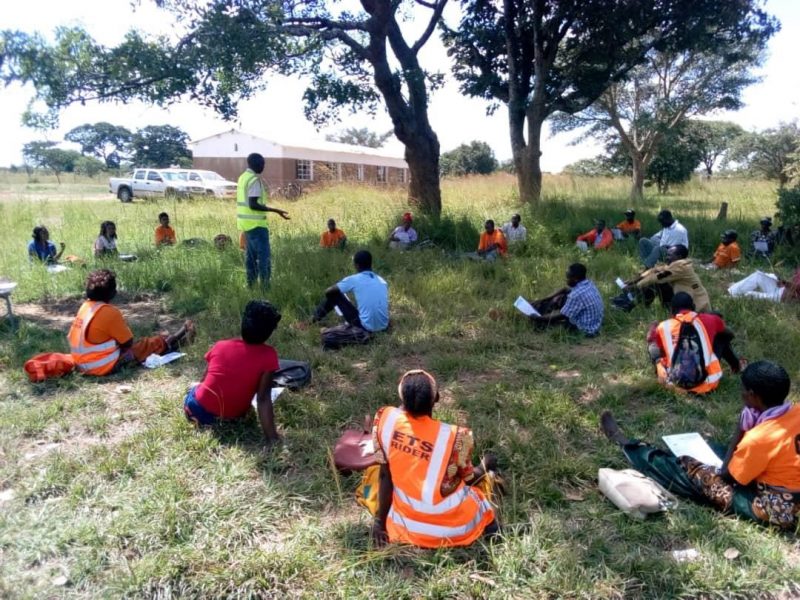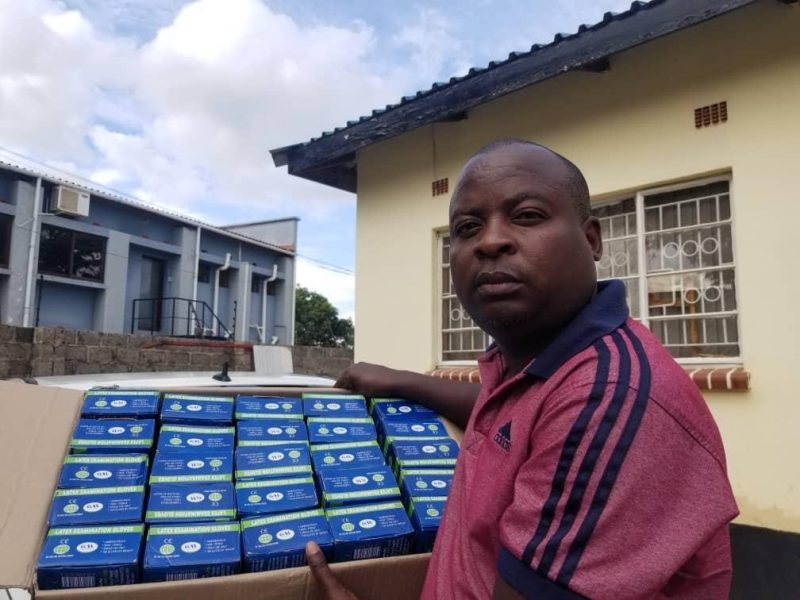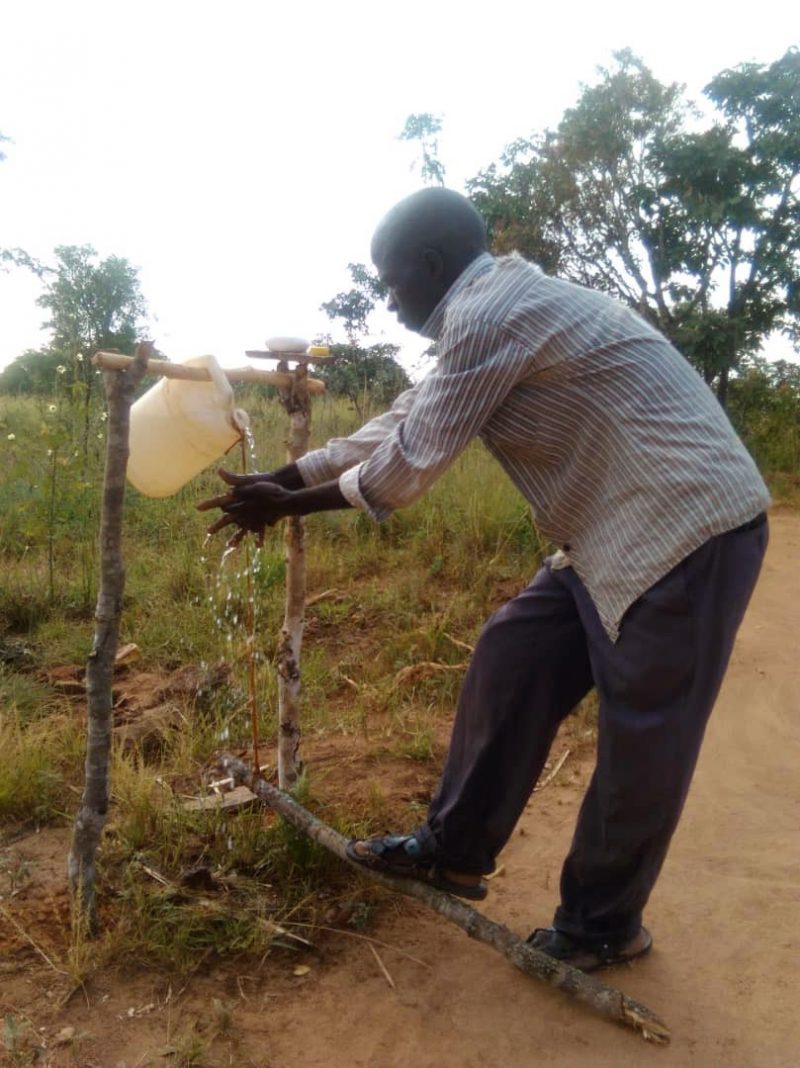
Transaid Secures New Funding to Adapt Malaria Network for Key Role in Zambia’s Covid-19 Response
Transaid is helping some 200,000 rural Zambians to prepare for global pandemic COVID-19, by strengthening and adapting community systems already in place through the MAMaZ against Malaria (MAM) at Scale programme, using new funding from international philanthropy, the FIA Foundation.
The Transaid team has been working to ensure communities in rural Zambia have critical information about COVID-19, including details on how to protect themselves, supported by rapid funding from the FIA Foundation totalling €150,000 to have an immediate impact on the ground.
This has seen Transaid and its partners act fast to expand the remit of its life-saving MAM at Scale programme. Originally established using community health volunteers, bicycle ambulances and volunteer riders to support patients with suspected severe malaria in reaching a health facility – the programme will now integrate COVID-19 messaging and interventions in a bid to prevent the rapid spread of the disease.
Caroline Barber, Chief Executive of Transaid, says: “We have been engaged at the highest levels in-country to support preparations being made on the ground. The spread of the disease in Zambia is several weeks behind Europe and North America, meaning every second counts. The more we can do now, the more lives we can save.”
Saul Billingsley, Executive Director of the FIA Foundation, says: “Transaid and its partners have built a community health network which has had a huge impact on malaria health outcomes, through education and treatment outreach, with a direct application for the new global health challenge of COVID-19. The FIA Foundation is proud to support the nimble adaption of the existing network to reach many of the most remote communities in Zambia to save lives.”
Transaid’s work has involved developing hygiene and social distancing posters in English and local languages, plus the use of community radio. Together with its partners in the MAM at Scale programme, it has also been contributing heavily to the Community Health Worker National Guidelines and supporting the district health teams in giving educational talks in local communities on prevention and response. Transaid has also been helping to build resilience by stocking up food banks in 180 communities for the most vulnerable.
Other initiatives have included the procurement of cloth masks, disposable gloves and soap to protect community health volunteers and bicycle ambulance riders, together with the installation of ‘tippy-tap’ systems to provide hand-washing facilities in 180 communities. New safety protocols which include guidance on personal safety have also been rolled out to the volunteer riders.
Commenting on next steps, Barber adds: “We are currently working at full steam both in the UK and on the ground in Africa. The whole team is highly motivated to ensure we can make a real difference, including sharing this approach, materials and learning with other countries.
“We have lots more activities planned for the coming weeks and we are hugely thankful to the FIA Foundation for reacting so quickly and enabling us to get to work straight away.
“Their support will help ensure that vital services and medicines won’t stop reaching the children who need them most; we are absolutely committed to ensuring we do not lose
ground in the fight against malaria.”
For more information and to find out how you can support the organisation visit www.transaid.org.



Leave a Reply
You must be logged in to post a comment.